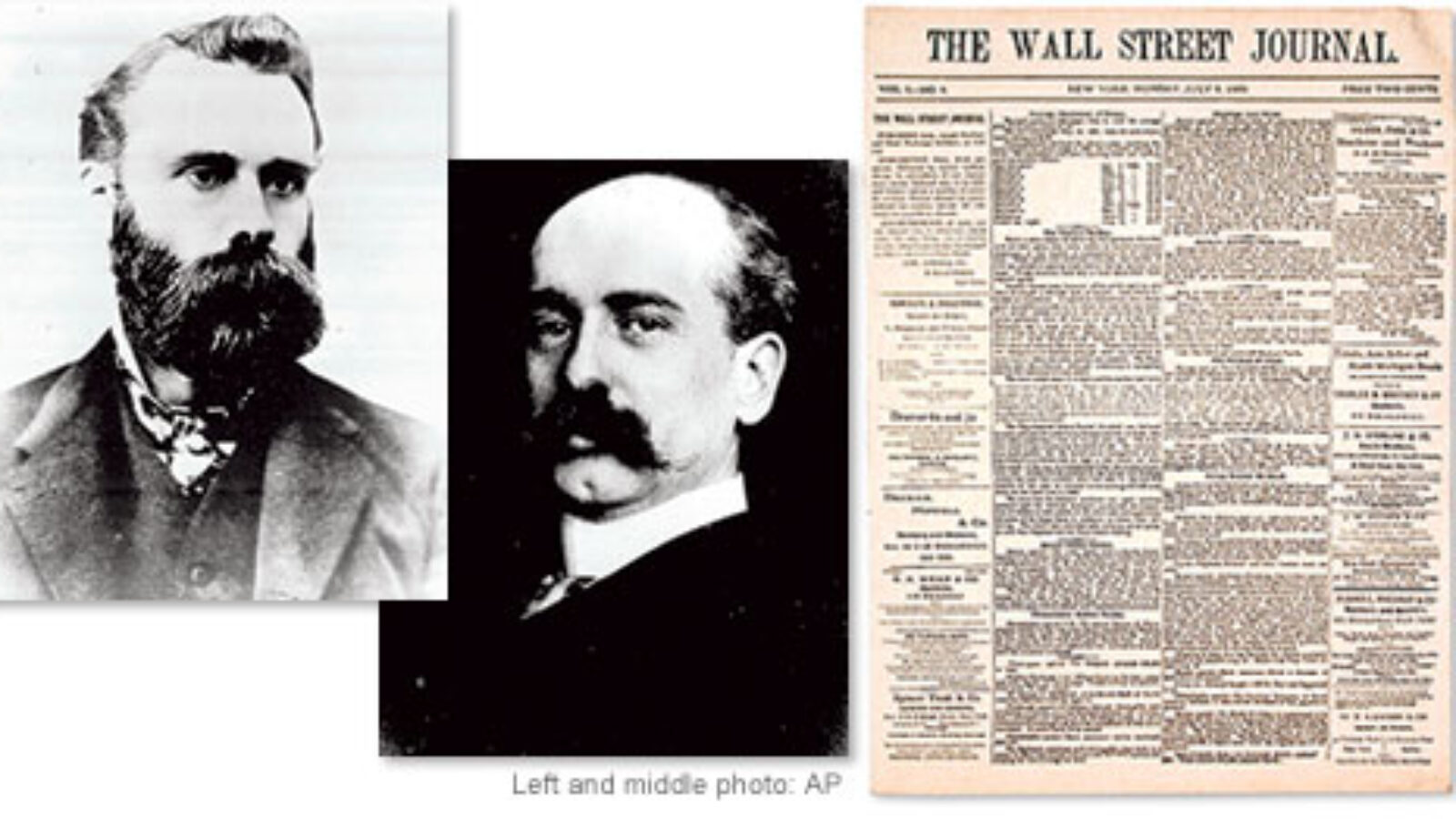July 8, 1889: During the 1880s, Dow ventured into journalism, relocating to New York City and joining a financial news service as a reporter. Collaborating with Edward D. Jones in 1882, Dow co-founded Dow Jones & Company. This enterprise provided Wall Street financial institutions with timely bulletins, known as “flimsies” or “slips,” delivered by messengers. The final delivery each day included a precursor to The Wall Street Journal, a news sheet that would pave the way for the renowned publication.
Charles Henry Dow
American journalist
Charles Henry Dow, (born Nov. 6, 1851, Sterling, Conn., U.S.—died Dec. 4, 1902, Brooklyn, N.Y.), American journalist who cofounded Dow Jones & Company, a financial news service, and The Wall Street Journal. His original contributions include the compilation in 1884 of the first average of selected U.S. stock prices that, with some modification, developed into what are known as the Dow Jones averages.
In his twenties Dow took up journalism, moving to New York City in 1880 to become a reporter for a financial news service. In 1882 Dow and Edward D. Jones (1856–1920) founded Dow Jones & Company, a firm that delivered bulletins, called “flimsies,” or “slips,” to Wall Street financial houses by messenger. The last delivery of the day included a news sheet that was the forerunner of The Wall Street Journal, which was first published July 8, 1889. Dow made his reputation as a financial expert when he was the paper’s first editor (1889–1902), and his writings for it form the basis for the “Dow theory” in market analysis. He was a member of the New York Stock Exchange (1885–91) and a partner in the brokerage firm of Goodbody, Glyn & Dow.
